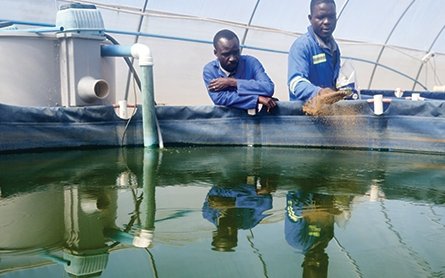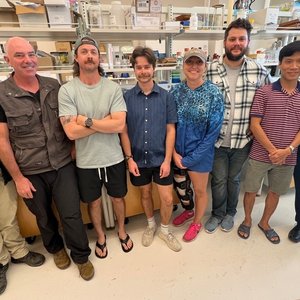Spearheaded by the FISH4ACP program, stakeholders from across Zimbabwe’s tilapia value chain recently gathered to dialogue on upgrading Zimbabwe’s tilapia value chain and figure out a plan for tilapia aquaculture development in the country.
Implemented by FAO and supported by the European Union (EU) and German Federal Ministry for Economic Cooperation and Development (BMZ), FISH4ACP is a global fish value chain development initiative of the Organisation of African, Caribbean, and Pacific States (OACPS).
The agreed ten-year strategy expects a nearly three-fold increase in farmed tilapia production in the country from 5,600-14,000 tonnes per year in 2032 raising the sector’s yearly benefits from USD 5.6-22 million in ten years.
The plan advocates for best practices so that growth has no negative effects on biodiversity and ecosystems and inclusivity to increase the participation of women, youth, and marginalized groups ensuring 40% occupation among small-scale fish farmers by 2032.
“Tilapia farming can be a driver of our countries’ inclusive growth,” said J Masuka, minister of lands, agriculture, fisheries, water, and rural development. “This agreement will help our tilapia aquaculture take off and can be instrumental to reduce poverty and improve food security.”
According to Patrice Talla, FAO’s sub-regional coordinator for Southern Africa, the tilapia farming industry in Zimbabwe needs better inputs and fingerlings, good practices, and support for cold chain and marketing. He also highlighted the importance of harmonizing the regulatory framework and compliance to achieve social improvements and environmental protection.
“FAO is happy to contribute to Zimbabwe’s efforts to expand aquaculture production,” said Talla. “FISH4ACP demonstrates how we can fulfill our mandate to transform aquatic food systems into drivers of employment, economic growth, social development, and environmental recovery.”













